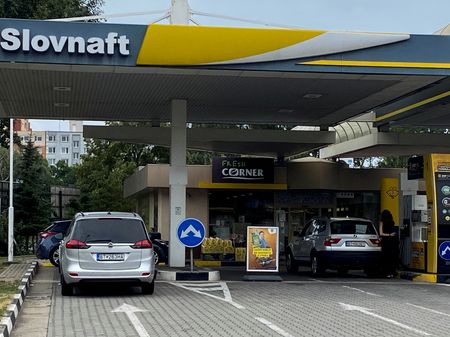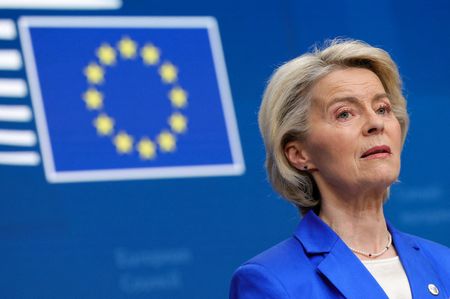(Reuters) -Slovak refiner Slovnaft said on Tuesday that Croatian pipeline operator JANAF had reduced deliveries of non-Russian crude to it for technical reasons, hitting its efforts to refine fuel from other sources.
Janaf responded denying Slovnaft’s assertion that it was in breach of contract.
Slovnaft, part of Hungary’s oil and gas group MOL, mostly processes Russian oil and has an exemption from European Union sanctions that allows it to export products derived from those deliveries.
It has sought to raise the amount of non-Russian crude at its refinery and was due to have a mix of 50% of non-Russian crude in October and November, according to a spokesman.
SLOVNAFT SAYS ISSUE JEOPARDISES NON-RUSSIAN FUEL SUPPLIES
But Slovnaft is facing the loss of 90,000 tonnes of deliveries of Arab Light crude via Janaf, which Slovnaft spokesman Anton Molnar said has told it that volume is needed to help push other volumes through the system.
“Janaf told us they need this technological amount because they stopped supplying Serbia’s NIS after the U.S. administration sanctioned them,” he said.
Earlier this month, Janaf said in a statement that it had delivered everything in its system owned by Russian-owned NIS following the sanctions.
Replacing the volume cannot be done quickly, impacting Slovnaft’s refining schedule, Molnar said.
“They seriously jeopardise the supply of non-Russian fuel to Central Europe,” he said, adding that Slovnaft had informed Janaf that it considered the Croatian company in breach of contract.
JANAF SAYS CONTRACT BREACH ACCUSATION ‘FALSE AND UNFOUNDED’
Responding to Reuters, Janaf said oil transport through its system was being carried out according to the transport schedule and in full compliance with its agreement with Slovnaft.
“We firmly reject the claims made by Slovnaft … regarding breaches of the contract provisions as false and unfounded,” it said in a statement.
It called on the MOL Group to increase its utilisation of the oil pipeline’s capacity.
“The current use of the pipeline by the MOL Group is significantly below the contracted and customary business practice in the oil pipeline transport sector,” it said.
The Adriatic pipeline from Croatia is a key route for alternative supplies for Hungary and Slovakia, which have long relied mostly on Russian crude via the Druzhba pipeline.
Hungarian and Slovak officials have worried over the Adriatic’s capacity and costs.
JANAF transports 2.1 million metric tons of crude oil to MOL’s refineries in Hungary and Slovakia this year under an existing deal.
In 2024, Slovnaft processed a total 4.8 million tonnes of crude, of which 662,000 tonnes were alternative types.
Slovakia and Hungary, which both differ with the EU over Brussels’ approach to the war in Ukraine, are also facing their own questions over U.S. sanctions on Russian oil companies Lukoil and Rosneft.
Hungarian Prime Minister Viktor Orban said last week that Hungary was working on finding a way to circumvent those sanctions and he is expected to meet President Donald Trump next week to discuss the sanctions.
(Reporting by Jason Hovet, additional reporting by Daria Sito-Sucic; Editing by Conor Humphries and Joe Bavier)











